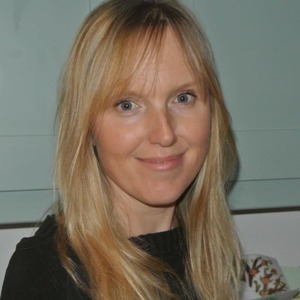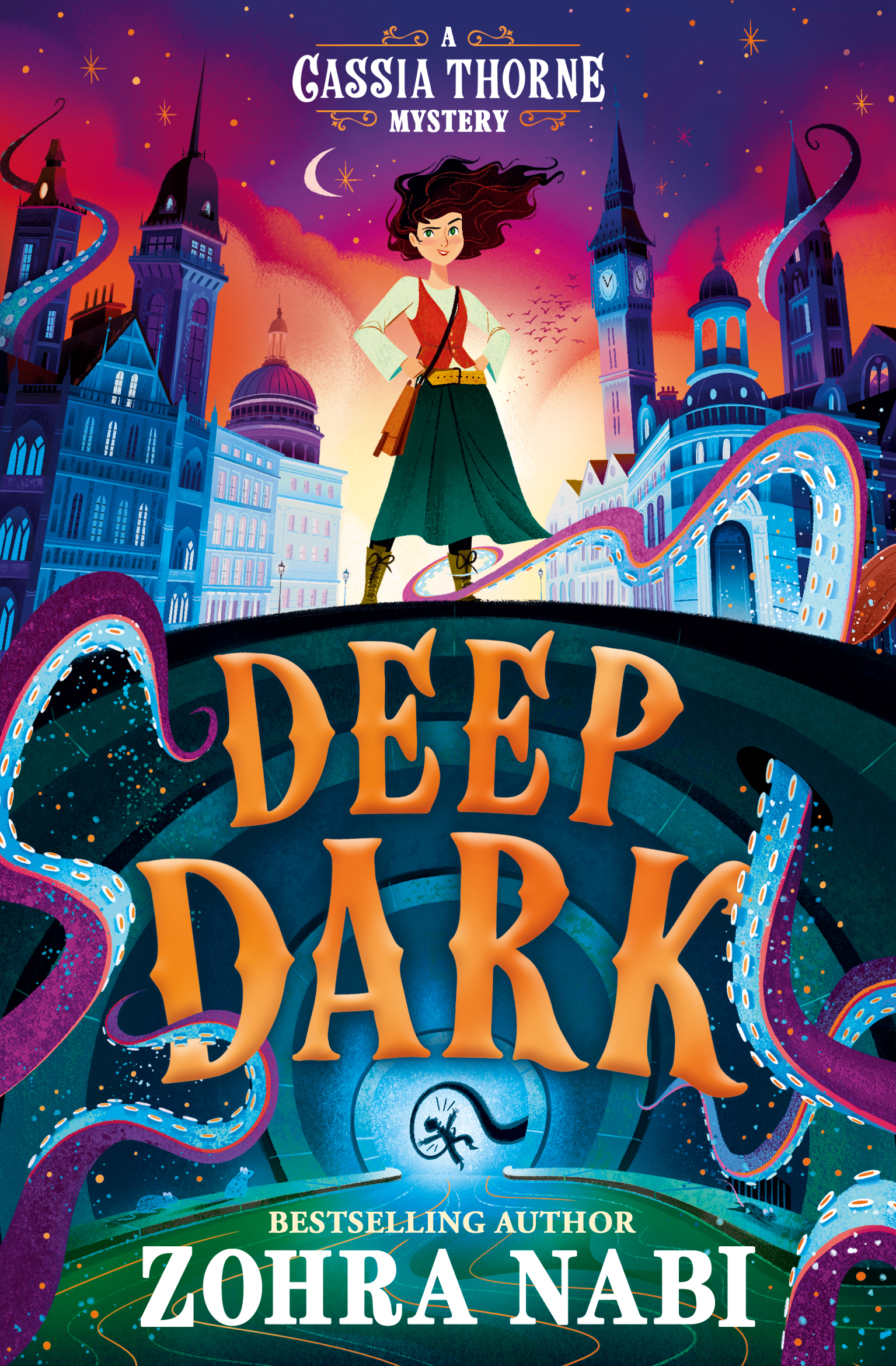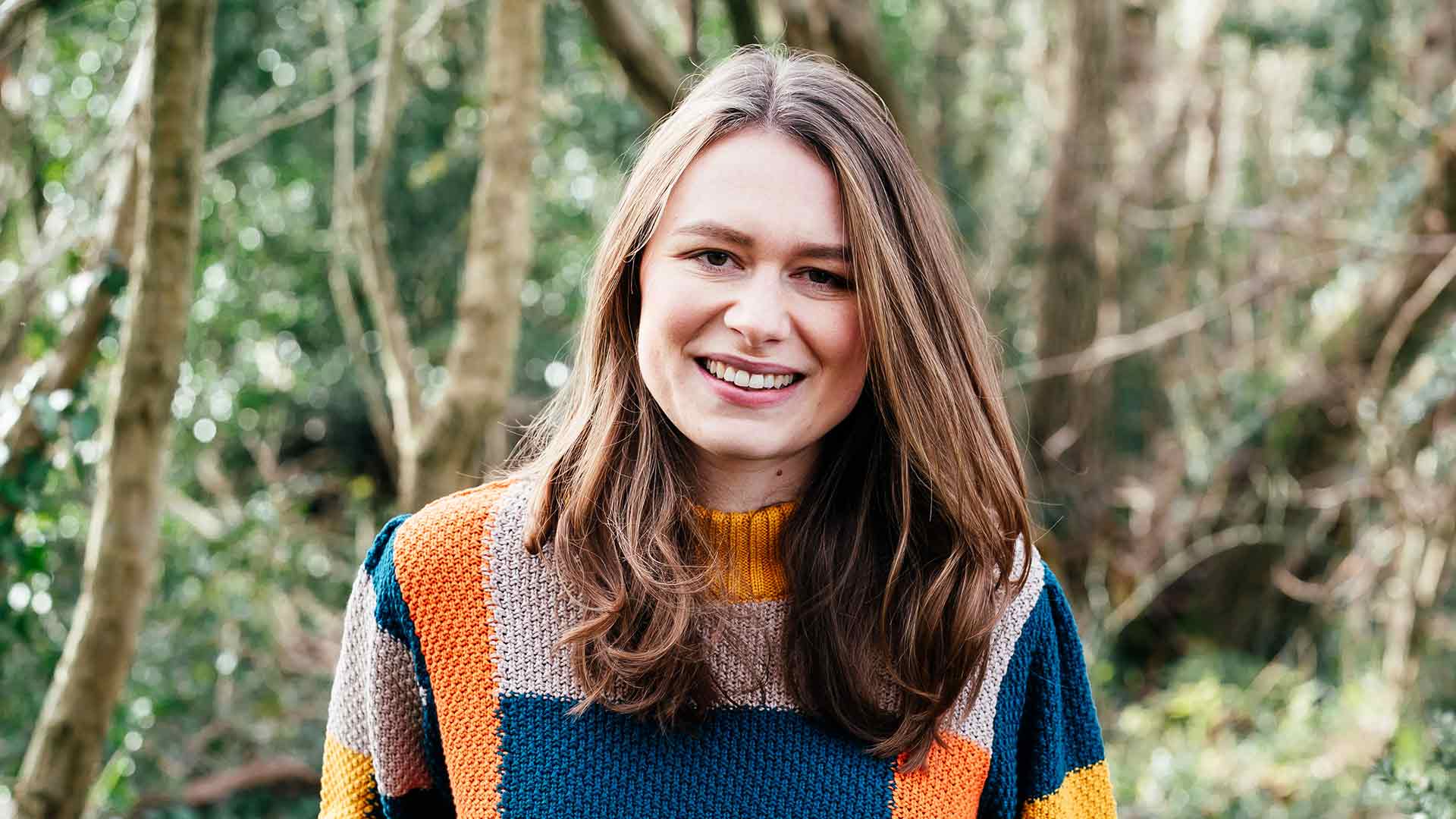You are viewing your 1 free article this month. Login to read more articles.
Zohra Nabi tells a tale of two cities with her new novel
With her new middle-grade novel replete with tales of child trafficking and homelessness, Nabi draws illuminating parallels between Victorian and modern-day London.
"I was a real costume drama child!" confesses Zohra Nabi, speaking to me over video call from her London home. “A weird thing to be,” she laughs, “but I was so obsessed with all those brilliant BBC dramas like David Copperfield and Bleak House. I thought it was the best storytelling I’d ever come across.” This love of the Victorian era led her to iconic historical fiction like Joan Aiken’s The Wolves Of Willoughby Chase sequence and Philip Pullman’s Sally Lockhart series.
In March, her obsession with the genre plays out in the publication of Deep Dark, the first in a planned series of children’s middle-grade mysteries set in Victorian times. The book’s heroine is Cassia Thorne, a young girl who is leading several lives. By day, she sells ballads on the streets of London and longs to write her own; she also works as a music tutor in a grand house in Russell Square. By night, she is locked up in the Fleet, a debtors’ prison where her father has been captive for four years. “She is desperate to get out,” says Nabi. “All she is focused on is how she can leave this life behind and become someone new.”
Cassia works with Teo, a young Italian pickpocket who feeds her the sensational material for her stories. When she learns that children are inexplicably going missing she resolves to investigate, with the help of her friend Felix. Their hunt leads them to dark whispers of abductions and rumours of a monstrous beast lurking in the heart of the city.
The book opens in 1833 with a gloriously vivid whirl through the streets of London as two boys unwittingly follow the course of a secret river churning beneath them. The rhythm and life of the city streets is palpable. “That’s where I always begin,” Nabi reveals: “With a scene that has that sense of atmosphere. What does the world feel like? What does it feel like to be a person in this environment? I want everything to feel very physical.”
London itself, with its rich history, is a huge inspiration to her. “You’re never that far away from a medieval gargoyle or a graveyard,” she says. “Cities are such an interesting way to show human life – this massive, terrifying force of life – and how we come up against each other, and all the things we can change and all the things we can’t.”
Nabi was studying for a Master’s in modern legal history when she signed her first book deal, and became fascinated by how pivotal in history the Victorian era was. “How do you live in a time where everything is changing under your feet and the world is reshifting?” She is now working on a PhD exploring the poor laws and workhouses, a topic that feeds directly into the themes of Deep Dark. “How do we want to care for each other? What are those responsibilities and obligations and how does that change when society changes?" She notes how very different people’s attitudes to children were at that time, recalling accounts of street children being compared to squirrels and foxes.
We are living with extremes of poverty paired with really rapid technological development which is changing the way we think about things
One issue raised in the book, through the character of Teo, is the historical fact that children were being trafficked from Italy to Paris, London and New York, to be street musicians controlled by a padrone. “They had a really short life expectancy,” explains Nabi, “and everybody knew this, yet any reference to them is about noise, nuisance, with no questions about their welfare.”
Parallels can be drawn, she continues, with our modern world. “In some ways, we are living with extremes of poverty paired with really rapid technological development which is changing the way we think about things, in the way that industrialism changed the way people of the 19th century thought about things.” Although attitudes to children are very different now, child trafficking and homelessness remain prevalent. “I think children need stories that acknowledge these things as issues, which confront them and show how you can tackle them.”
Nabi’s debut, The Kingdom Over the Sea, was a middle-grade fantasy adventure, and that fantasy element was still very much something she wanted to work into Deep Dark. “There’s something that feels magical about London anyway,” she enthuses. “The fog and alley ways and old churches. There’s so much joy in teasing out the fantastical or scary in that city.” She describes the book as Dickens with monsters – the sequel will be the Brontës with witches – slowly revealing the fantastical elements as the plot progresses and the children uncover the conspiracy at the heart of the city. “Because the themes in the book are quite serious – capitalism and colonialism – introducing a fantasy element allows a child reader to encounter those ideas in a more accessible, interesting way.” Making the book a historical fantasy also allowed Nabi to be more explicit in treating those ideas like real evils. “There is nuance,” she says, “but they become the monsters of epic fantasy”.
Monsters aside, the heart of the book is Cassia’s quest to carve her own way in life. Children view life in extremes, Nabi observes, and it can feel like adults are these unsympathetic gatekeepers who are keeping you away from secrets. The adults in Deep Dark echo those “larger than life, always flawed” adults like those Dickens wrote about. “You have to get past them to become your own person.” What does she hope readers will take away from Deep Dark? “I hope it makes that journey through childhood feel more navigable. Even though the themes are quite weighty, ultimately the journey is Cassia deciding who she wants to be, what she wants her life to be like and what she finds important.”











